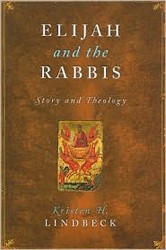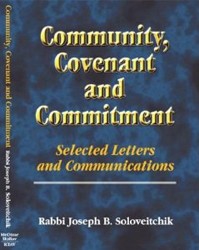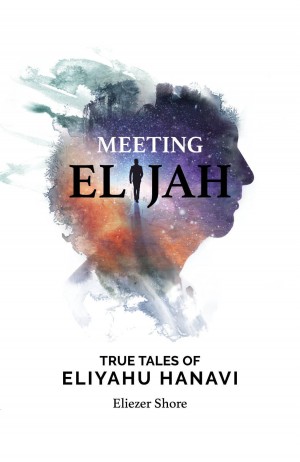Elijah ben Solomon, the “Genius of Vilna,” was perhaps the best-known and most understudied figure in modern Jewish history. This book offers a new narrative of Jewish modernity based on Elijah’s life and influence.
While the experience of Jews in modernity has often been described as a process of Western European secularization — with Jews becoming citizens of Western nation-states, congregants of reformed synagogues, and assimilated members of society — Stern uses Elijah’s story to highlight a different theory of modernization for European life. Religious movements such as Hasidism and anti-secular institutions such as the yeshiva emerged from the same democratization of knowledge and privatization of religion that gave rise to secular and universal movements and institutions. Claimed by traditionalists, enlighteners, Zionists, and the Orthodox, Elijah’s genius and its afterlife capture an all-embracing interpretation of the modern Jewish experience. Through the story of the “Vilna Gaon,” Stern presents a new model for understanding modern Jewish history and more generally the place of traditionalism and religious radicalism in modern Western life and thought.
Meet Sami Rohr Prize Finalist Eliyahu Stern
A Vanished World Illuminates America
by Eliyahu Stern
My mind was on my grandfather’s books when I decided to write about Elijah of Vilna (known as “The Genius or Gaon”). I remembered my Zadie, a child of Lithuanian yeshivot, sitting at his desk in Baltimore squinting his eyes over dozens of oversized tomes that had become repositories of a vanished world. Little did I imagine that I would eventually see in these works the first chapter to the story of contemporary American Jewry.
When Elijah of Vilna passed away in 1797 he had penned more commentaries to classical Jewish works than anyone in Jewish history. His commentaries exemplified a belief in study as the apex of Jewish life, inspired the founding of the famous Volozhin yeshiva, and indeed, the modern yeshiva movement that thrives to this day. I myself spent time studying Elijah’s cryptic commentaries in yeshiva but decided to pursue graduate work in Jewish history at the University of California, Berkeley. There, I realized that Elijah’s influence extended well beyond the walls of Jewish study houses. Elijah was an inspiration to the founder of secular Zionism, Moses Lilienblum; the editor of the Yiddish Forward, Abraham Cahan, and to the masses Moses Gertz referred to when claiming that by the late nineteenth-century “every home in Lithuania was decorated with the picture of the Gaon.” Observant Jews hung portraits of him with a prayer shawl; secular Jews left him in Polish garb.
Elijah’s popularity ran counter to the common narratives of Jewish modernity. His life and legacy shared very little in common with the experience of acculturation, emancipation, and religious reform, the emergence of modern denominations (Reform, Conservative, Orthodox), and the influence of scientific thought and enlightenment. If Elijah was not involved in these movements and developments, what made him a hero to so many different kinds of nineteenth and twentieth-century Jews?
I filed these questions in the back of my mind until one evening, while sitting at High Table in the wood-paneled dining hall of Brasenose College, one of my colleagues leaned over to inquire about the “difficulty” of transitioning from yeshiva to Berkeley. Instead of serving him a poor man’s version of Chaim Potok’s The Chosen, I replied that it was not half as challenging as travelling from Berkeley to Oxford. “This is the first time in my life that I feel like…,” I hesitated, “a minority.” Of course Jews are, technically, a minority group in the U.S., even in New York, but on a daily basis, I explained that I never felt estranged or different from other Californians or New Yorkers or Americans. I never felt threatened by an outside cultural force that impinged upon my ability to be Jewish or identify as such.
The next morning I sat down at my desk at the Oriental Institute, where Jewish Studies is housed at Oxford, and began answering my question. Elijah was not the least bit connected to any of the so-called “modern movements.” How could he? Elijah lived in the Eastern European city of Vilna, where Jews comprised forty percent of the population. With the exception of Hasidim, he never exhibited any signs of being threatened by an outside cultural force that impinged upon his ability to be Jewish or identify as such. The themes of acculturation, emancipation, and religious reform all derived from the experiences of Jews who lived as minorities in Western European countries. I stopped asking if Elijah was influenced by Moses Mendelssohn, German philosophy, and scientific innovations and instead focused on why the Eastern European Zionist Peretz Smolenskin maintained that Elijah had influenced Mendelssohn.
Eastern European Jews resided in towns and cities in which they often totaled 30 or 40 percent of the local population. Elijah’s exaltation of Jewish texts, battling against the Hasidism, and inspiring his students’ emigration to Palestine reflected the intellectual and social effects of living in densely populated Jewish locales. Eastern European Jewry’s “virtual majority” living conditions allowed Jews to develop ideologies that did not revolve around the politics of acculturation typified by Western European Jewish religious denominations.
A couple of years later, I returned to the East Coast and soon realized that my own intellectual journey bore a striking resemblance to what was happening to American Jewry. American Judaism was undergoing a radical transformation away from models and institutions built on the Western European Jewish experience to those whose provenance ran back to Eastern Europe. In the twentieth century, Jews immigrating to the U.S. from Warsaw and Vilna largely conformed to the denominational structures established by Western European Jews. The denominations helped make Judaism a respected religion in American public life. By the end of the twentieth century, the blessings of acculturation, emancipation, and religious reform had reaped a Jewish vice-presidential candidate, a precipitous decline in anti-Semitism, and female rabbinical leaders. However, there was a crisis in the very structure upon which the denominational movements were established.
Today the great successes of contemporary American Judaism are found not in the ideas promoted by Western European Jewry, but rather in the movements that emerged from the East: Hasidism, Zionism, and the Yeshiva. Synagogues, both traditional and liberal, are increasingly adopting neo-Hasidic approaches to prayer. Organs and cantors are giving way to guitar-strumming folk singers. The American Israel Political Action Committee (AIPAC) has become not simply a political lobby group but a form of religious identification for American Jews. Torah study is not only booming in Brooklyn and Lakewood, but also practiced in egalitarian and socially progressive learning institutions, as well as community Federations across the country. Texts, spirituality, and Zionism have replaced acculturation, emancipation, and religious reform as the core identity markers of contemporary American Judaism.
Everything about my grandfather’s world now appears illuminated in ways unforeseeable to Irving Howe when he respectfully eulogized his father’s world. Today, Eastern European Jewry’s cultural and religious legacy provides a resource for a more confidant contemporary Jewish identity, one not based on sentimentality, overcoming anti-Semitism, battling against acculturation, or translating Jewish tradition into Protestant terms. Instead of evaluating Jews in terms of how they engage with the non-Jewish world, we would do better to focus on how they engage with Judaism, through texts, spirituality, or Zionism. I only began to appreciate the radical transformation of American Jewish life when I finally understood the Genius of Eastern European Jewry’s religious legacy.





